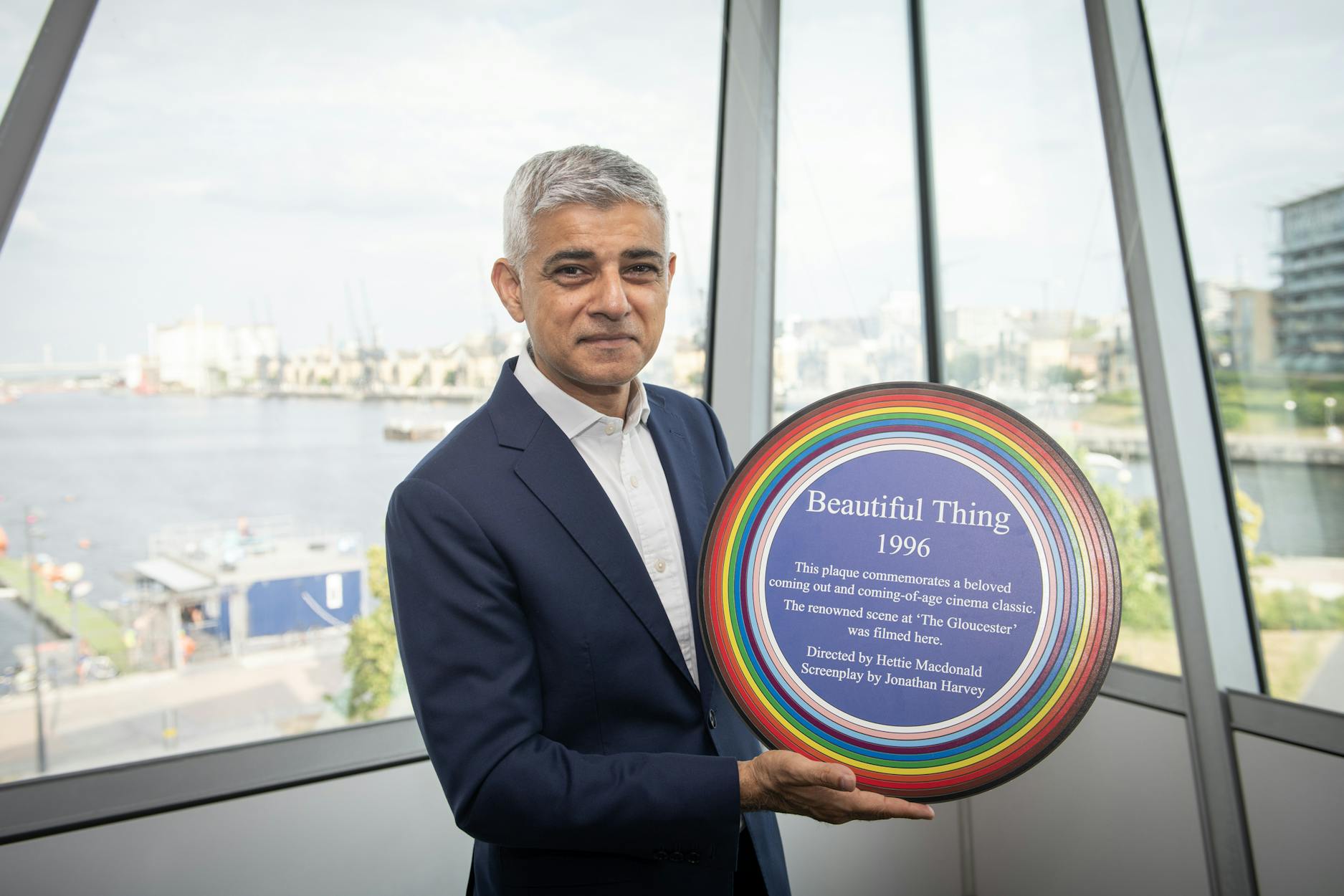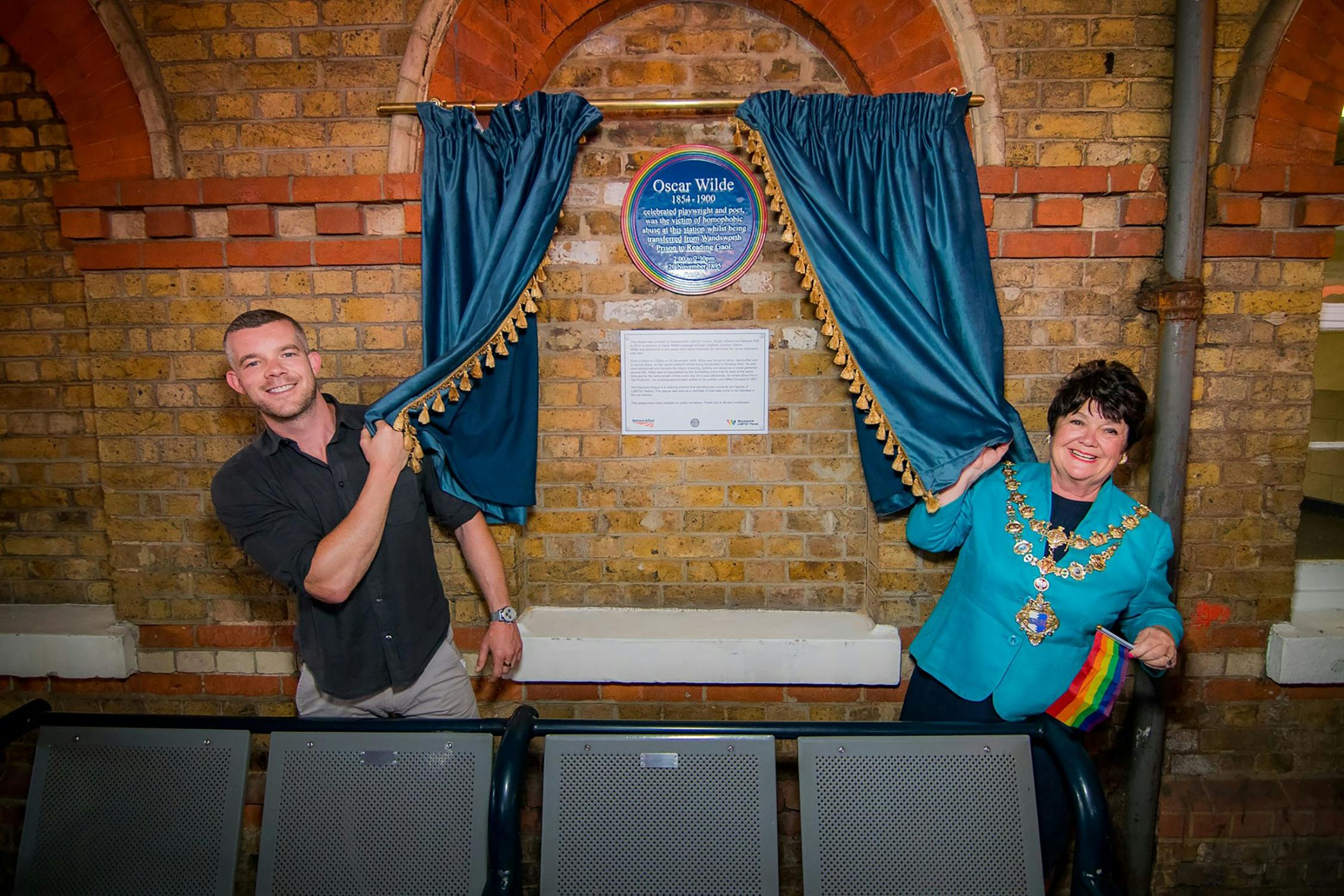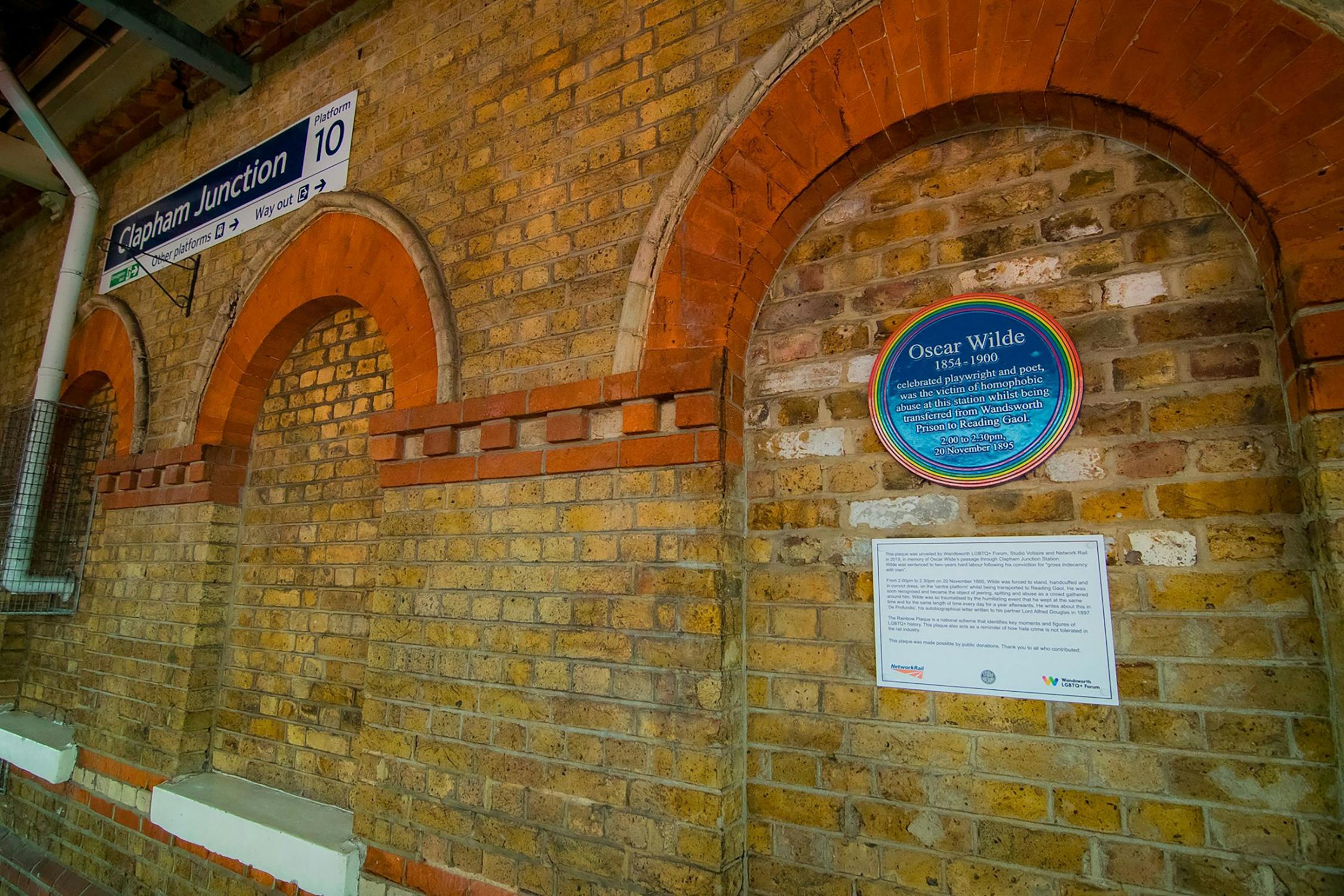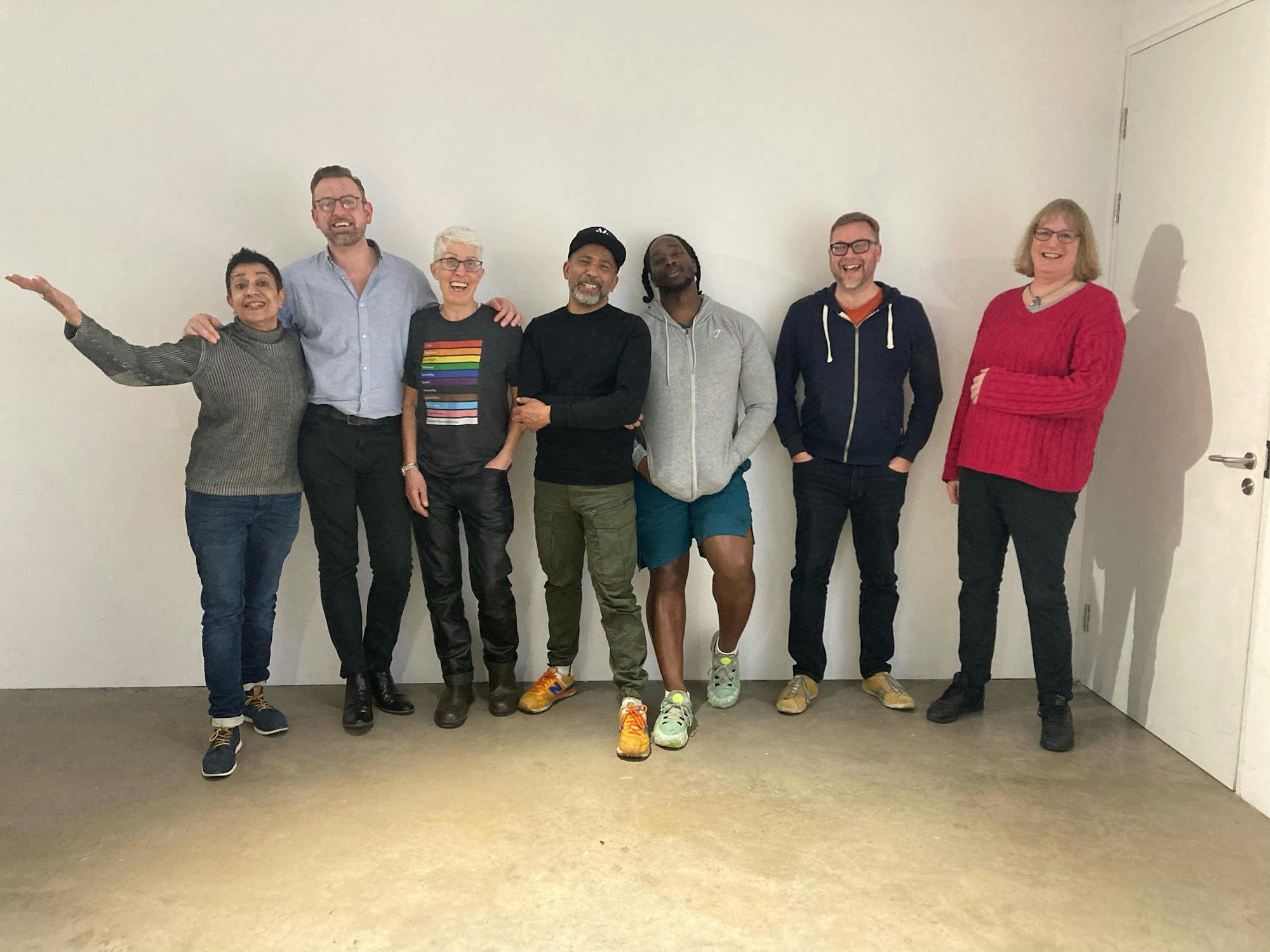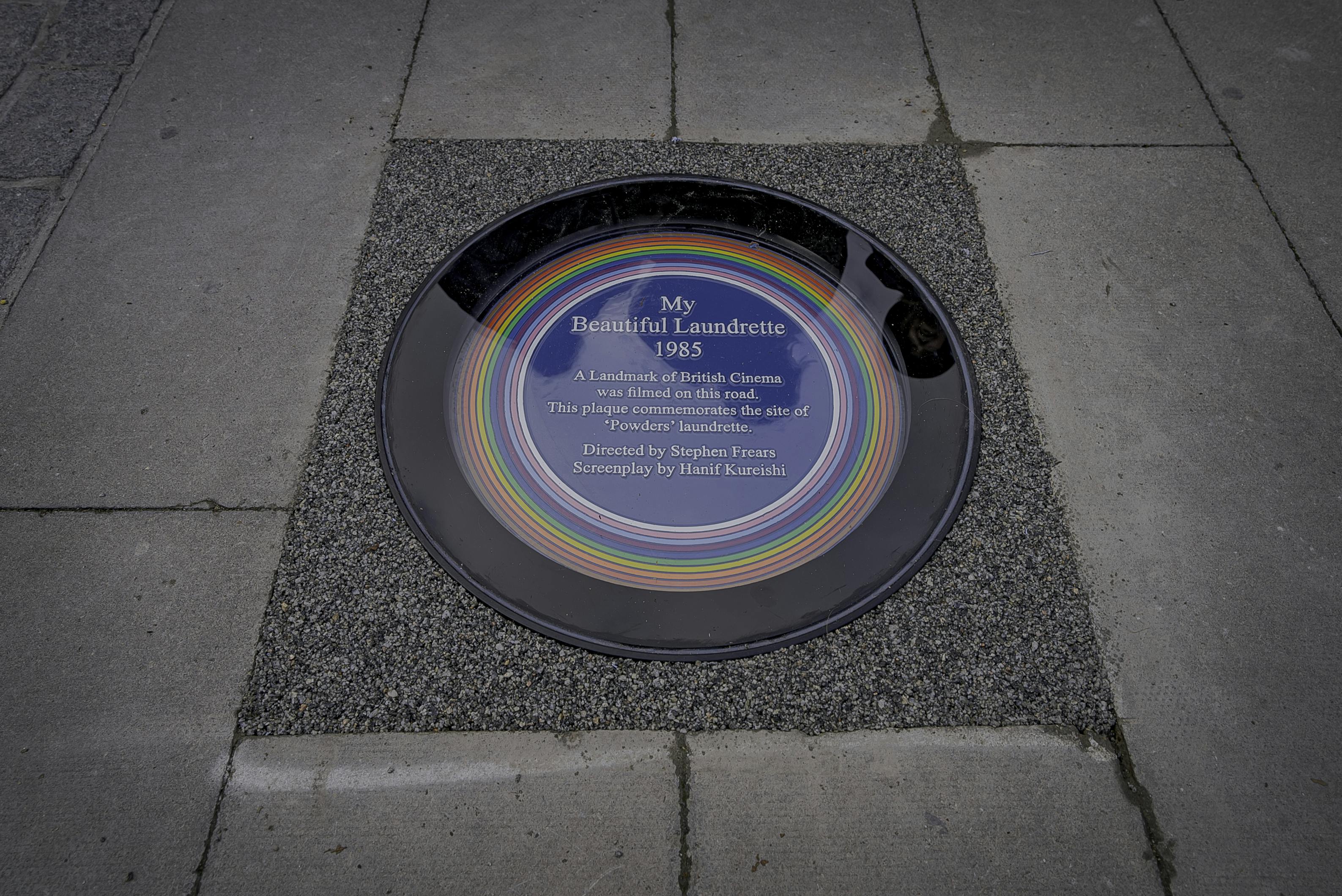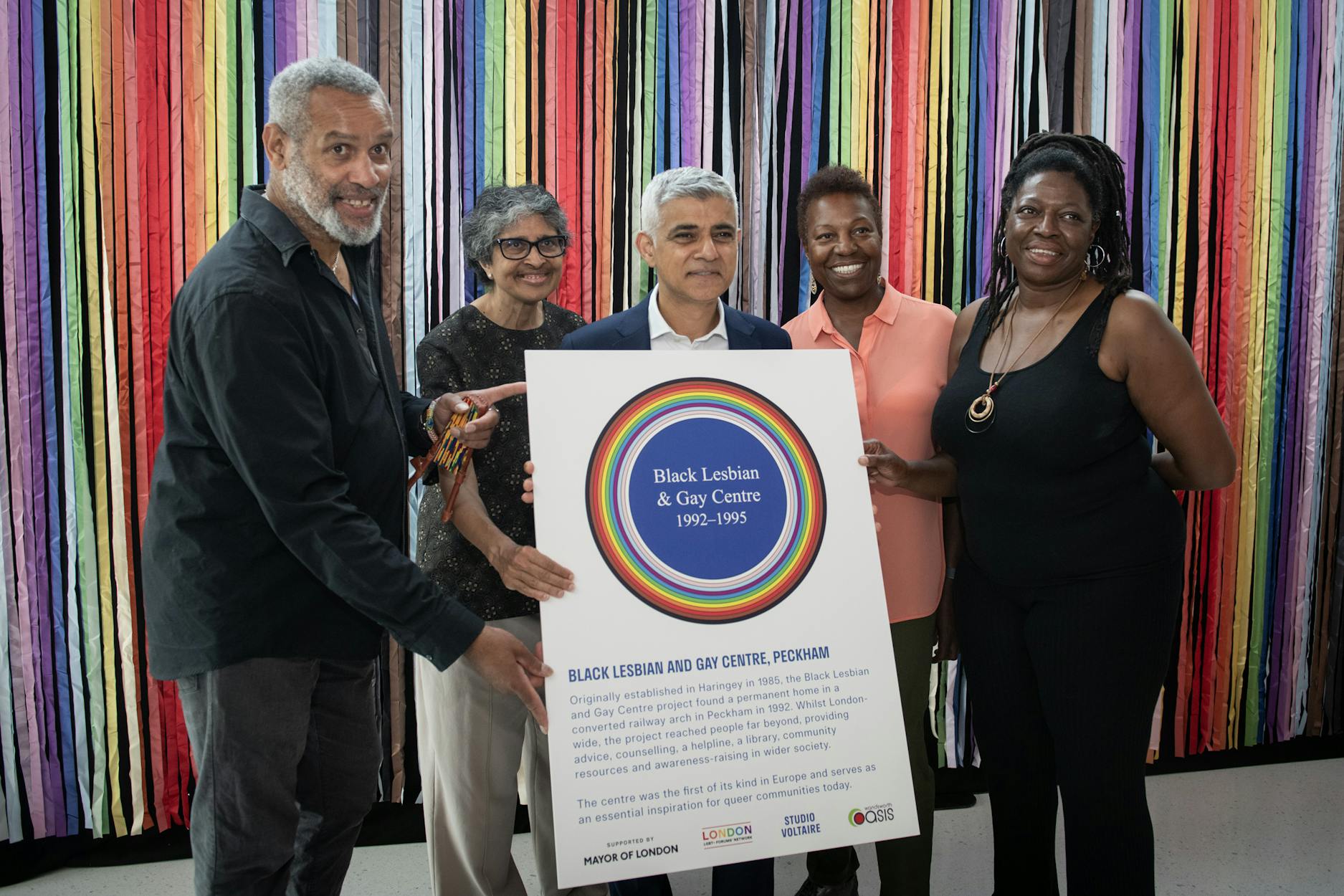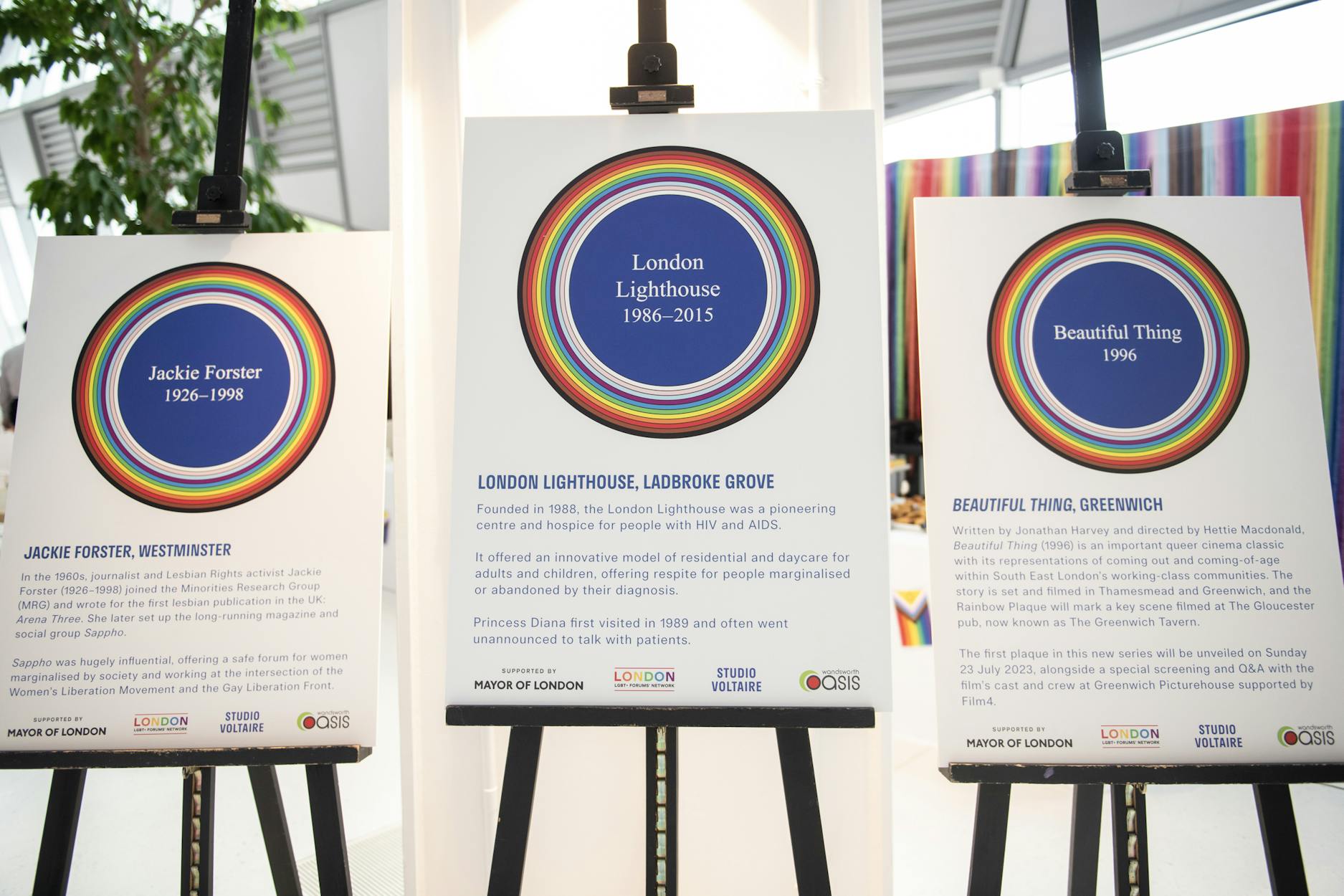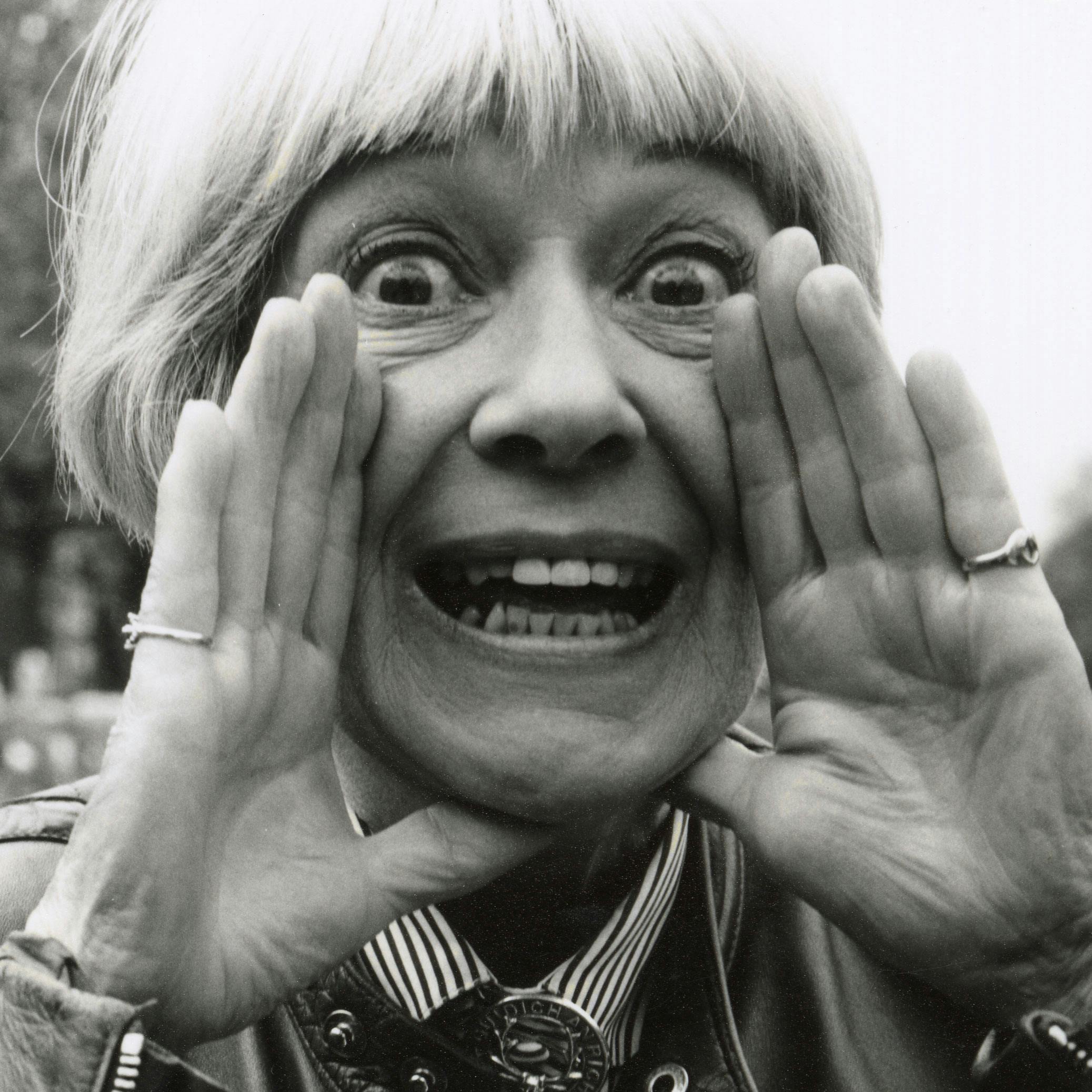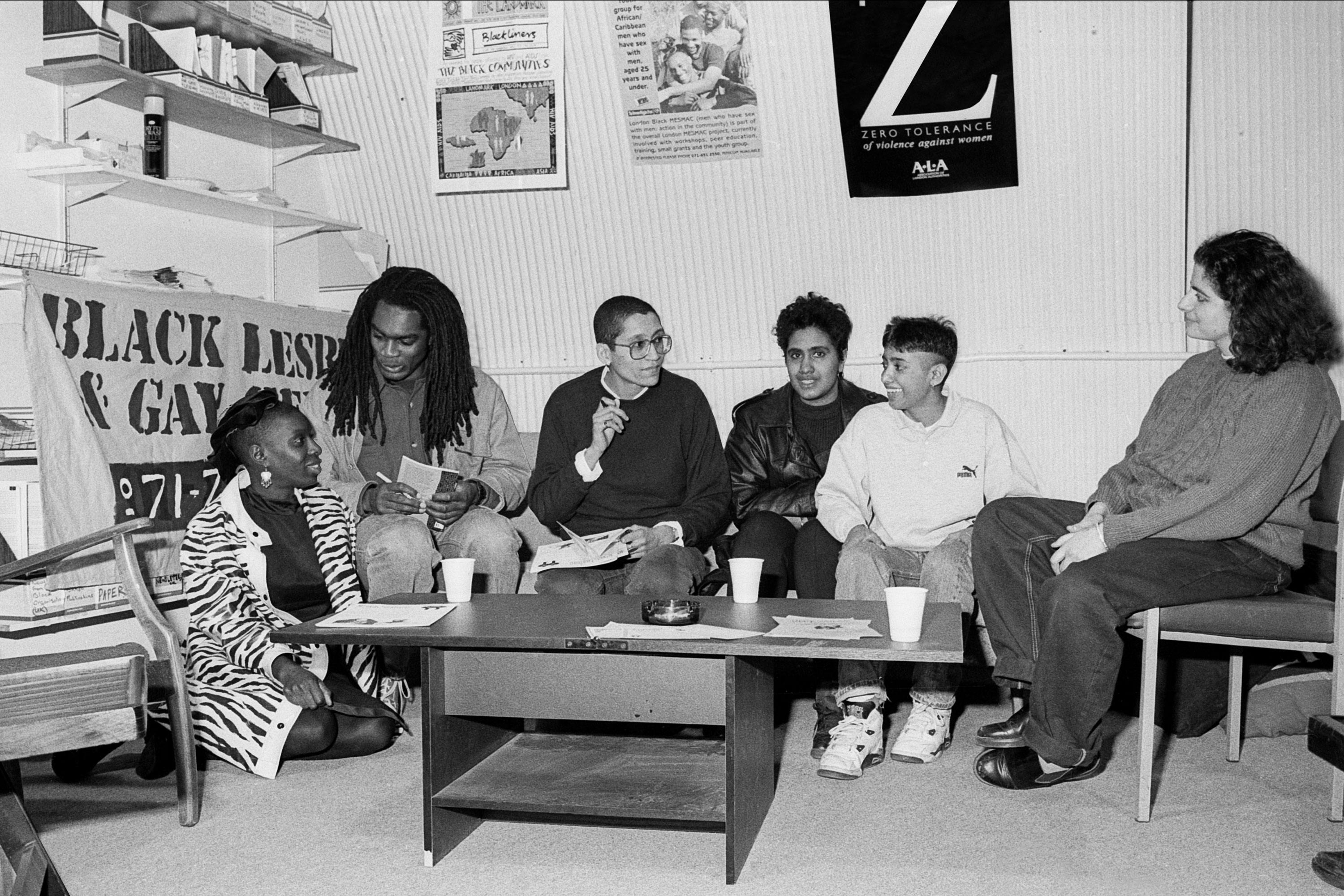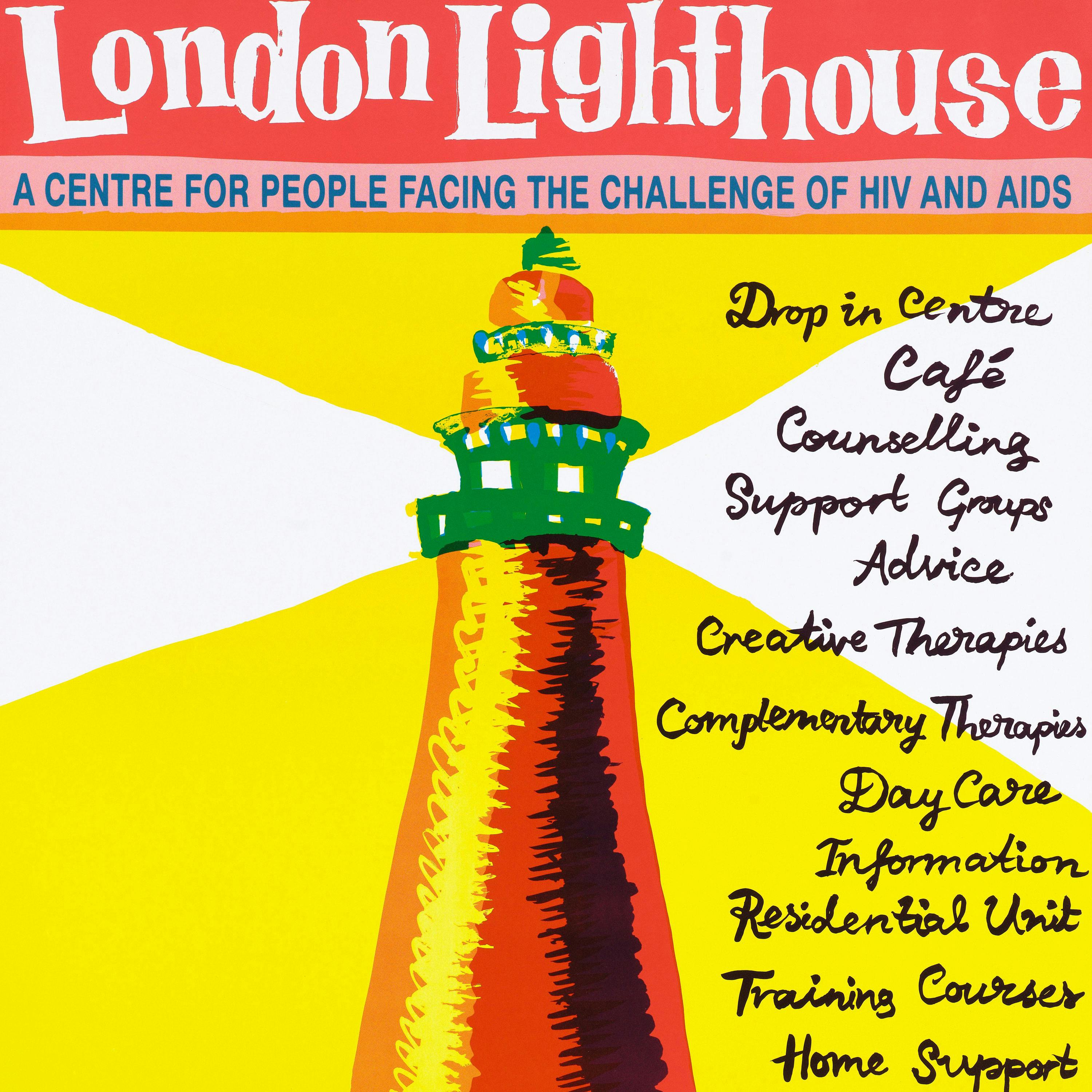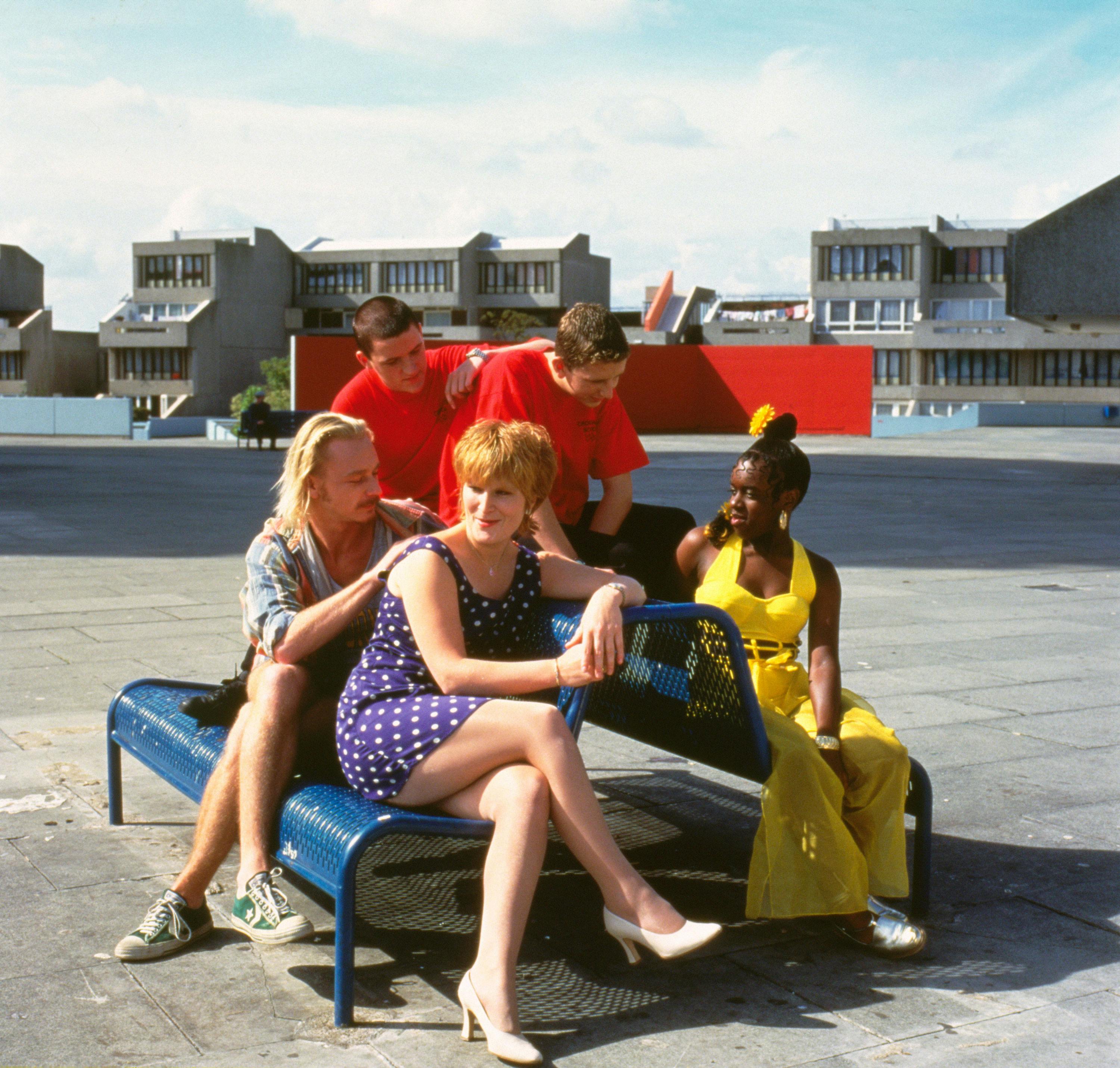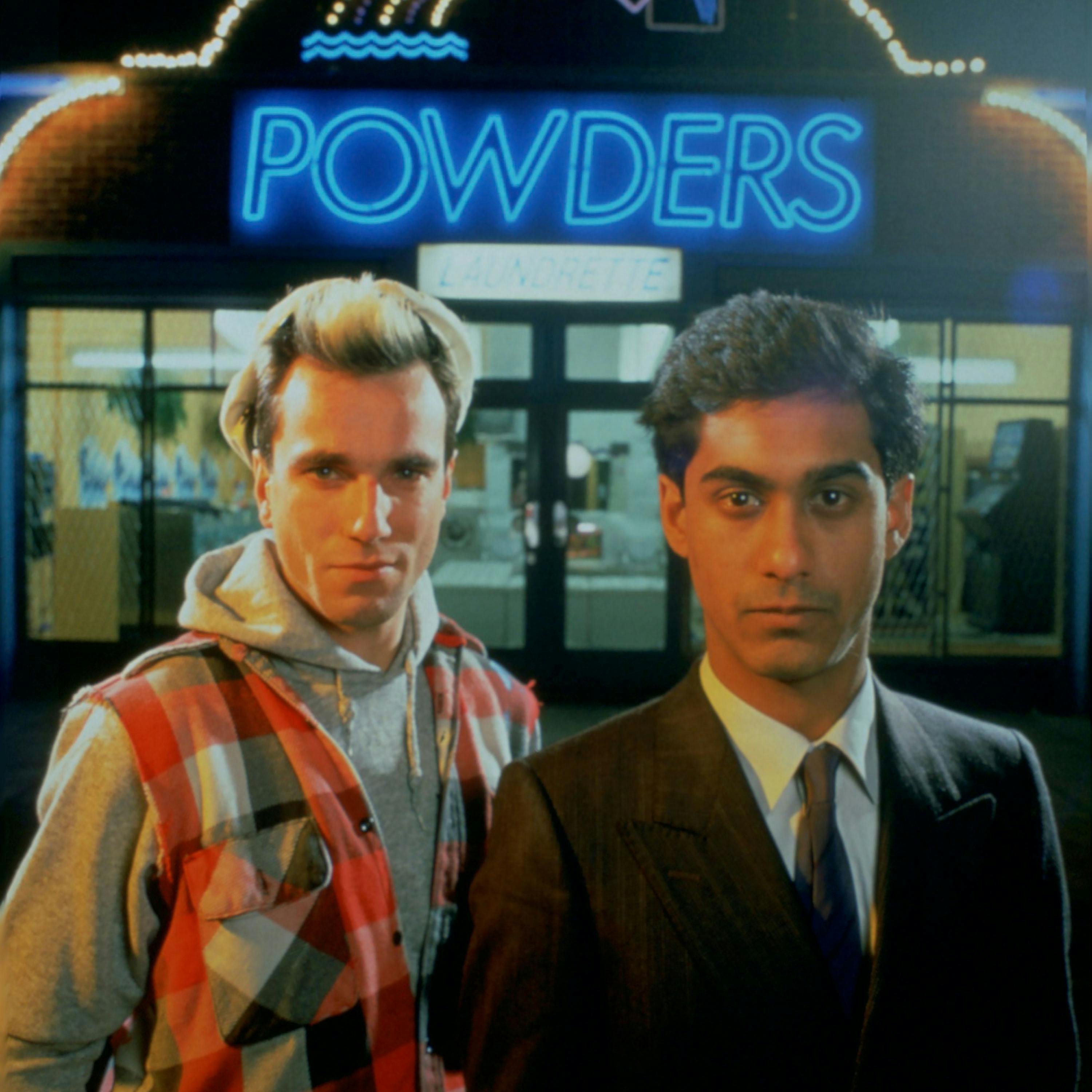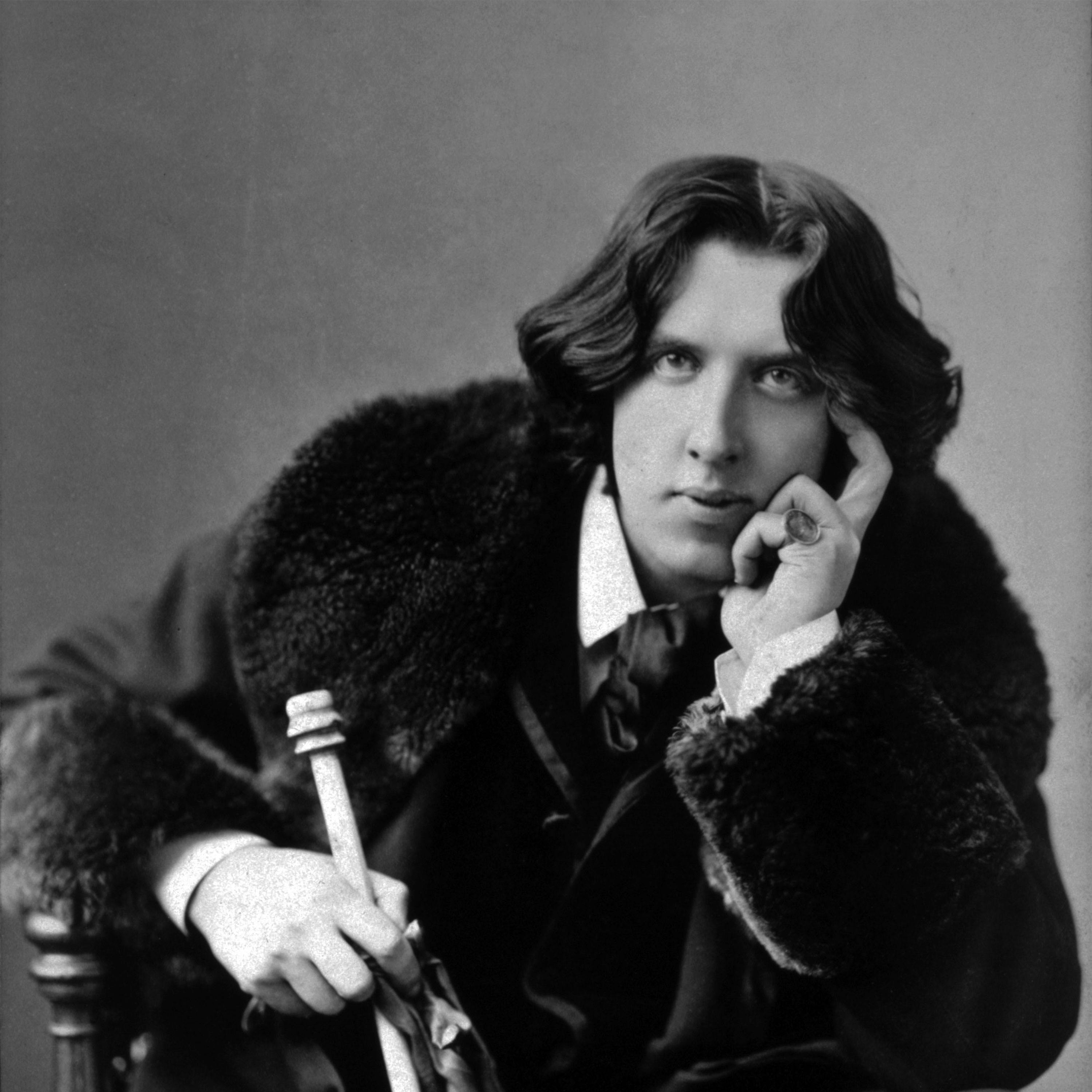The London LGBT+ Forums Network is a collection of individual LGBTQIA+ forums, Prides and borough-based community groups from across Greater London. They exist to tackle issues of inequality within the public services and to be a voice for their members and LGBTQ+ residents as well as deliver projects that celebrate our shared culture and heritage.
Rainbow Plaques
Rainbow Plaques is an ongoing programme led by Studio Voltaire and the London LGBT+ Forums’ Network, which identifies hidden and lost LGBTQIA+ heritage whilst highlighting the importance of intersectional queer visibility in our streets and public spaces.
Many LGBTQIA+ individuals and communities continue to experience discrimination and hostility. At a time of heightened tensions, increased transphobia, hate crime and targeted budget cuts to community services, this programme works to honour the histories and legacies of influential LGBTQIA+ figures and their associated spaces, stories and culture.
From 2023, five new Rainbow Plaques are being unveiled, dedicated to people, places, culture and significant moments that have been obscured or lost in LGBTQIA+ histories. Suggestions for the new plaques were crowdsourced by a group of more than one hundred people who took part in consultation workshops and rigorous discussions alongside an advisory panel including Dr Justin Bengry (MA Queer History course convenor at Goldsmiths, University of London), Fisch (Performer and Activist), Tessa Havers-Strong (Director of Forum +), Juliet Jacques (Writer and Filmmaker), Nathan Lewis (Programme and Partnerships Manager of Black Thrive & Chair of Southwark LGBT Network), DJ Ritu (DJ, Broadcaster, Producer) and Marc Thompson (Curator and Activist).
The five new Rainbow Plaques are dedicated to Beautiful Thing in Greenwich, London Lighthouse in Ladbroke Grove, the Black Lesbian and Gay Centre in Peckham, Jackie Forster (aka Jacqueline MacKenzie) in Westminster and Section 28 in Haringey. These five new plaques demonstrate our broader ambition to grow the Rainbow Plaques programme across the UK and to inspire communities to share their nominations, spark important conversations and make more queer history visible in the public realm.
This new phase of the programme builds upon existing work established by Wandsworth LGBTQ+ Forum and Studio Voltaire in creating permanent plaques for Oscar Wilde at Clapham Junction Station in 2019, and the 1980s film classic, My Beautiful Laundrette on Wilcox Road in 2021.
The Rainbow Plaques programme was established in 2018 by York Civic Trust and the York LGBT Forum to honour lesbian diarist Anne Lister (1791–1840). This series of Rainbow Plaques is generously supported by The Mayor of London’s Untold Stories Fund as part of his Commission for Diversity in the Public Realm, with additional support from Wandsworth Oasis.
This series of Rainbow Plaques is generously supported by The Mayor of London’s Untold Stories Fund as part of his Commission for Diversity in the Public Realm, with additional support from Wandsworth Oasis.
Untold Stories is a £1m fund to help communities test, develop, create and grow projects that share their community’s stories with the city. Projects include a ‘walk of fame’ celebrating the role of Irish and Pakistani workers in Cricklewood; an augmented reality map highlighting Poplar’s hidden histories; a new mural in Croydon created by and for learning disabled artists; and new walking tours that offer a homeless perspective of London’s streets.
Since its foundation in 1989, Wandsworth Oasis has provided support to – and challenged stigma towards – those living with HIV. Using revenue generated by their nine charity shops located in south London, as well as fundraiser events, they have given over £1 million in grants to HIV-related projects and organisations during the last ten years alone.
